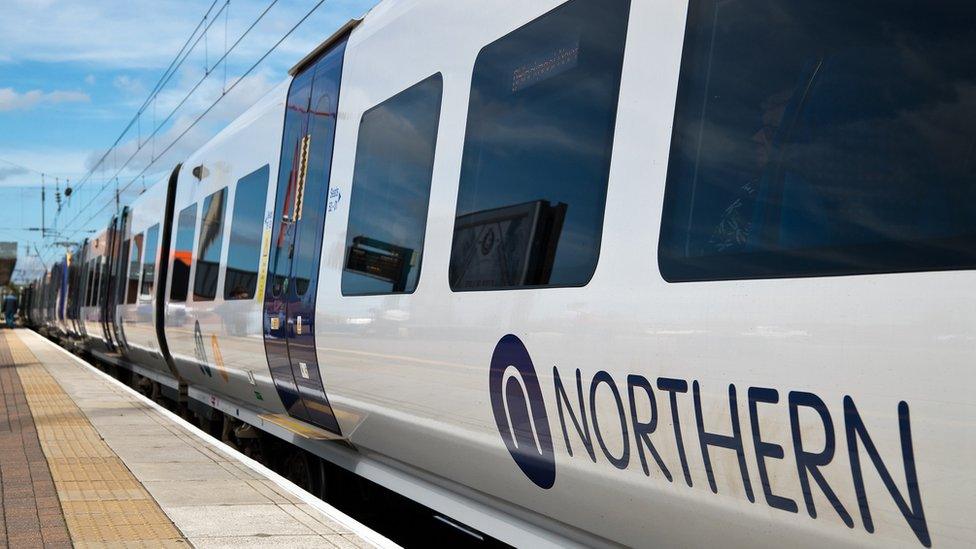Rail strikes will see Yorkshire services 'grind to a halt'
- Published

Northern, Transpennine Express and LNER said no services would run on Thursday
Rail passengers in Yorkshire are being warned services will "grind to a halt" next week due to national strike action by the train drivers' union.
Members of Aslef and staging one-day strikes against different train companies on May 7, 8 and 9.
CrossCountry and East Midlands Railways will be hit on Wednesday, while LNER, Northern, and TransPennine Express said there would be no trains on Thursday.
Aslef said it was seeking better pay for its members.
It said staff are being asked to sacrifice working conditions in exchange for a wage increase.

The strikes are part of a long-running pay dispute between Aslef and the Rail Delivery Group (RDG), which represents train operators
Passengers are advised to check before they travel, with the action likely to lead to delays and cancellations.
Staff at 16 train companies are holding rolling one-day walkouts between 7 and 9 May over pay and working conditions.
Tuesday 7 May: c2c, Greater Anglia, Great Northern, Thameslink, Southeastern, Southern, Gatwick Express, South Western Railway main line and Island Line
Wednesday 8 May: Avanti West Coast, Chiltern Railways, CrossCountry, East Midlands Railway, Great Western Railway and West Midlands Trains
Thursday 9 May: LNER, Northern Trains and TransPennine Express
Apologising for the disruption, Tricia Williams, chief operating officer for Northern, said: "Unfortunately, the action by Aslef on Thursday 9 May will see our network grind to a halt.
"On the days when strikes are taking place with other train operators, we will do everything we can to keep our services moving and absorb those extra passengers trying to travel across the region.
Steve Hopkinson, CrossCountry's Service Delivery Director, said the company would work to run "as many services as possible" but warned of "significant disruption".
The pay dispute started in summer 2022 and so far has not been resolved.
Aslef said train drivers have not had an increase in salary for five years, and the cost of living has increased significantly since then.
General secretary Mick Whelan said: "The employers - and the government - think we are going to give up and run away. They're wrong."

Follow BBC Yorkshire on Facebook, external, X (formerly Twitter), external and Instagram, external. Send your story ideas to yorkslincs.news@bbc.co.uk, external.
Related topics
- Published22 April 2024

- Published22 April 2024
- Published18 April 2024